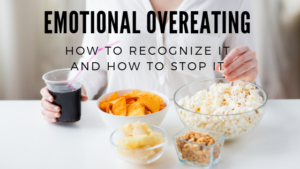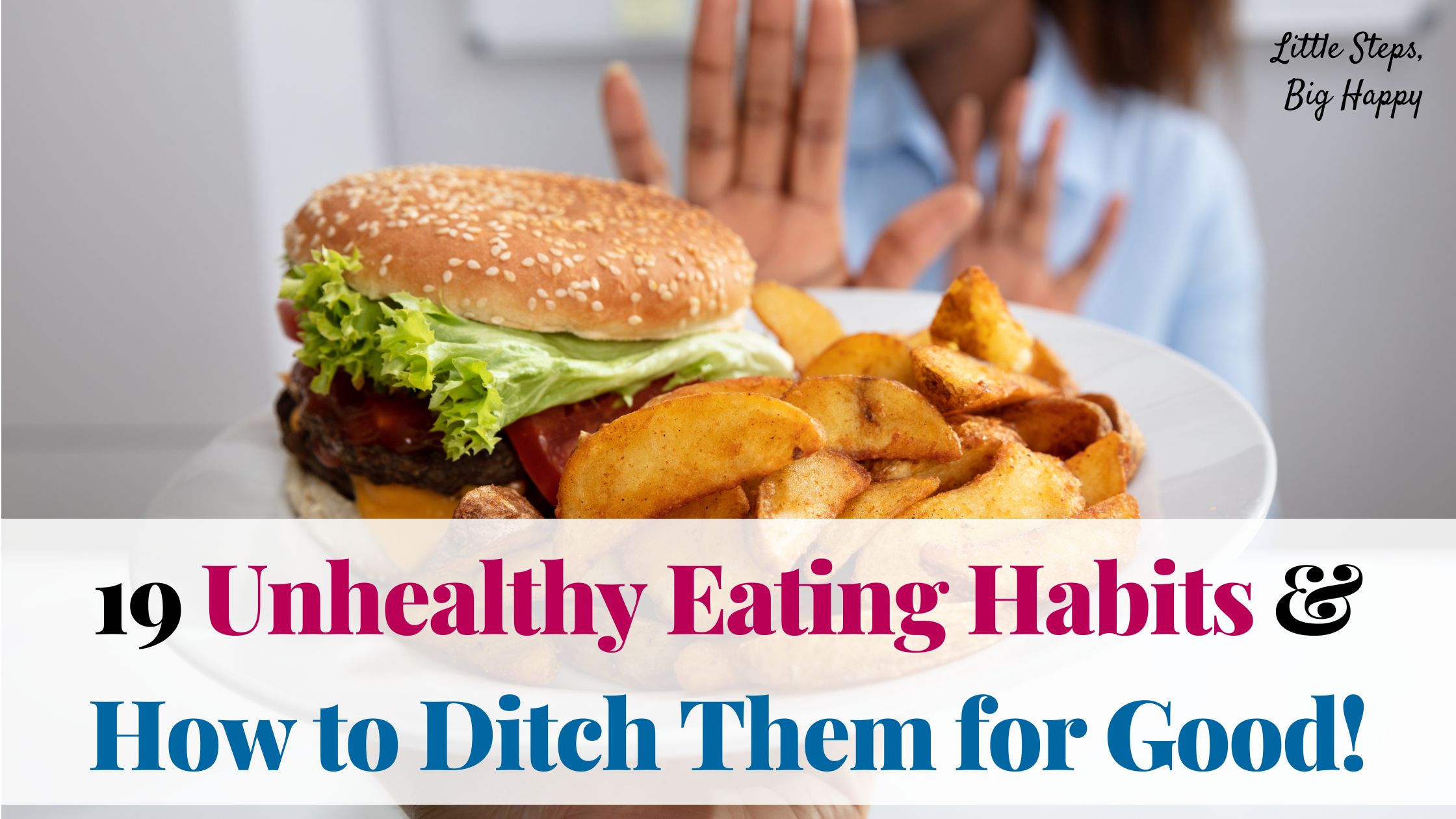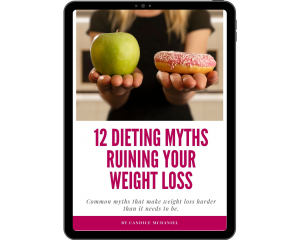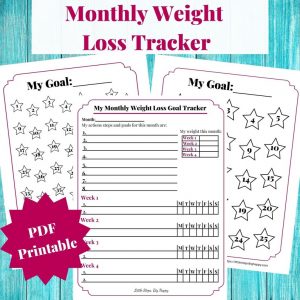If you’re looking for ways to ditch your unhealthy eating habits, look no further! In this article, we’ll discuss 19 common unhealthy eating habits and how to break them.
It happens to all of us. No, seriously! We’ve all picked up a few unhealthy eating habits along the way.
In fact, these poor habits are so commonplace, most of us don’t even realize we’re doing them. But unfortunately, they can also be a big barrier to reaching your health goals.
So if you’re looking to start feeling better inside and out, it’s time to tackle some of those less-than-desirable diet choices. To get started, let’s take a look at 19 common unhealthy eating habits and how to ditch them for good.

Disclosure: This post may contain affiliate links which I’m happy to promote. All thoughts and opinions are my own. Much love & thank you for your support. 
Contents
Diseases Caused by Unhealthy Eating Habits
One of the first things that people think of when they hear the phrase “unhealthy eating habits” is being overweight. And while eating poorly absolutely leads to weight gain, there are so many other reasons that you’ll want to ditch these bad habits.
According to the CDC here are some other diseases that are caused by unhealthy eating habits:
- heart disease
- stroke
- type 2 diabetes
- cancer
Wanting to lose weight is an excellent reason for cleaning up your diet (it was my main motivation 🙋🏾♀️), but it’s important to know that you’re also helping protect yourself against these other serious issues.
Causes of Unhealthy Eating Habits
Before we dive into this list of unhealthy eating habits, I think it’s important to talk about where they come from. There is a lot of guilt, shame, and negative emotions associated with poor eating habits.
Most of the women I’ve talked to feel bad that they’ve developed bad eating habits in the first place. Like it’s somehow their fault. Or something is wrong with them for developing these eating patterns.
But the truth is that developing unhealthy eating habits is made up of many different factors. It can be caused by anything from emotional coping mechanisms, medications you take, or even being unable to afford better quality food.
Not to mention some of us grew up being taught these behaviors or it was a part of our culture. If everyone around you eats like this, it’s not really a surprise if those are the habits you picked up.
So it’s important to remember that these habits aren’t your fault, and you’re not “weird” for having them. They are simply a product of your environment.
And now that you’ve become aware of a better way to eat, you can start learning new behaviors that will help you reach your health goals.
[convertkit_form form=”2423837″]
19 Unhealthy Eating Habits
Now, let’s dive into this list of unhealthy eating habits!
1.) Mindless eating
First on our list is mindless eating. This is a trap that so many people fall into.
When you eat mindlessly, you’re not paying attention to what you’re eating. Which means you’re much more likely to overdo it and overeat.
It’s so easy to sit down with a bag of chips or some candy. You plan to eat only a little bit, but because you’re distracted, the next thing you know, the whole bag is gone.
To help stop this unhealthy eating habit, make an effort to be more mindful when you eat. Turn off the TV or put away your phone and just focus on the meal in front of you.
2.) Late-night eating
Another unhealthy eating habit you’re going to want to stop is late-night eating. Late-night eating can often set back your weight loss progress, even if you’ve done great the rest of the day.
Late-night eating is a bad eating habit for a few reasons. One, very few of us are making healthy eating choices after 9 pm.
Most of us are reaching for something sweet or indulgent. It’s when we’re tired and worn out and we’re looking for something to settle us before bed or maybe give us that pick-me-up to finally get the kids down.
Either way, it’s rarely leading to healthy eating decisions.
Secondly, eating late at night takes our bodies out of fat-burning mode and increases our hunger. A study by the Harvard Medical School found that:
“Results revealed that eating later had profound effects on hunger and the appetite-regulating hormones leptin and ghrelin, which influence our drive to eat. Specifically, levels of the hormone leptin, which signals satiety, were decreased across the 24 hours in the late eating conditions compared to the early eating conditions.
When participants ate later, they also burned calories at a slower rate and exhibited adipose tissue gene expression toward increased adipogenesis and decreased lipolysis, which promote fat growth.”
All of this combined makes late-night eating one of the top habits you’ll want to ditch. So instead, make sure to have a filling dinner full of protein, healthy fats, and complex carbs to help keep you satisfied until morning.
3.) Grazing
Next on our list of unhealthy eating habits to ditch is grazing. Grazing is when you find yourself snacking and nibbling frequently throughout the day.
You only have a little bit here and there, so it’s easy to convince yourself you’re not eating that much. The problem is, that a little bit of food eaten frequently throughout the day really adds up to a lot.
Plus, because you’re constantly snacking, your body stays in fat-storing mode and never switches to fat-burning mode. It’s like constantly topping off your car’s gas tank every few miles.
You’ll never use up the extra gas in the tank. Or in this case, the extra fat on your body. And unlike a gas tank, our stomachs don’t have a defined size.
If you continue to overeat on a regular basis, the size of your stomach will grow, causing you to need more and more food to fill it up.
4.) Skipping meals
On the other end of the spectrum from constantly eating, another unhealthy eating habit is skipping meals. Skipping meals is a big no-no for anyone trying to lose weight or maintain their health.
When you skip meals, your body goes into starvation mode. It thinks it needs to save energy so stores up fat and slows down its metabolism.
This makes it harder for you to burn calories and reach your weight loss goals. Eating regular meals when you’re body gets hungry is the best way to make sure your body is getting the nutrition and energy it needs.
5.) Emotional eating
Another notable unhealthy eating habit that a lot of people fall prey to is emotional eating. Emotional eating is when you eat based on an emotion you’re feeling instead of hunger.
This could be anything from boredom, stress, sadness, anger, or even in celebration. When I finally started making changes to my eating habits, this was the number one habit I had to work on.
I was so used to turning to food to help deal with the day-to-day struggles of my life. Unfortunately, the only problem food solves is hunger.
So if you’re looking to lose weight or reach your health goals, you’ll want to work on letting this habit go.
6.) Eating too quickly
Another unhealthy eating habit to work on is eating too quickly. This is one I feel more and more people are falling into as our lives get busier and busier.
Whether you’re trying to scarf your food down during your lunch break or maybe eating something super quick before you take the kids to practice it all has the same negative effects.
Eating too quickly makes it harder for your body to recognize when it’s had enough. This can cause you to eat more than your body needs, leading to weight gain and health issues.
So instead, make an effort to really enjoy your food and savor each bite. Not only will this help to slow your eating down and give your body time to recognize when to stop eating, but it will also help you feel more satisfied when the meal is done.
[convertkit_form form=”2423837″]
7.) Missing sleep
This might surprise you, but not getting enough sleep is actually an unhealthy eating habit too. It doesn’t actually involve eating, but it does have a big impact on your hunger and cravings.
When you’re body is sleep-deprived it’s really hard to make good choices. Most of us are looking for a sugary coffee or energy drink plus something with lots of sugar and carbs to help give us that energy boost in the morning.
None of us have good impulse control when we’re tired. Plus, missing out on too much sleep can slow your metabolism down.
According to WebMD, “Too little sleep triggers a cortisol spike. This stress hormone signals your body to conserve energy to fuel your waking hours. Translation: You’re more apt to hang on to fat.”
That’s the last thing any of us wants, so it’s important to make an effort to get those 7-9 hours of sleep a night.
8.) Eating in front of a screen
The next unhealthy eating habit you want to avoid is eating in front of a screen. Whether it’s for fun or work, screens are super distracting.
And if you’re eating while distracted, it’s very easy to fall into the trap of mindless eating, as I mentioned earlier. When you’re more focused on the screen in front of you instead of the food you’re eating, you’re more likely to overeat.
It’s a lot harder to know when you’re full when you’re distracted. Try to set aside screen time during meals and really focus on the food you’re eating so you can recognize when your body is done.
9.) Eating junk food
I’m sure it’s no surprise that eating junk food is something you want to avoid when cleaning up your diet. What I think most people fail to realize is that eating junk food is a habit. It’s not just a decision.
When you’re used to eating unhealthy foods, your body will start to crave them.
To start making changes, I’ve found it’s easier to start replacing those unhealthy foods with healthier alternatives rather than cut them out cold turkey. Find a few healthier recipes and snacks that you can reach for when you’re craving something specific.
10.) Always clearing your plate
The next unhealthy eating habit you want to watch out for is always clearing your plate. This is a habit that’s pretty common and a lot of people learned growing up.
I vividly remember being told I had to clear my plate before I could be done eating. Our parents probably meant well, but when you carry this habit into adulthood with much bigger portion sizes, it can start to impact your health.
When you focus on clearing your plate instead of stopping when your body is satisfied, it’s really easy to find yourself overeating. To work on breaking this habit focus on listening to your body when you’re eating – stop when you start to feel satisfied.
Related posts:
- Emotional Overeating: how to recognize it and how to stop it
- How to Eat Healthy When Your Family Doesn’t
- 3 Ways You Practice Diet Sabotage & How to Stop!
11.) Eating when not hungry
This might sound like a no-brainer, but you would be surprised how often we make the mistake of eating when we’re not hungry. In the past, I found myself eating…
- in case I might be hungry later.
- because someone offered me something and I didn’t want to hurt their feelings.
- because I was stressed, tired, or sad.
- it was “time” to eat.
- because I “should” be hungry.
- when everyone else around me was eating.
A lot of us think we only eat when hungry, but these are common traps people fall into. It’s important to recognize why you’re reaching for food in these situations and come up with some healthier coping strategies.
Try drinking a glass of water, taking a walk, or finding something to keep you busy. These are all better options than eating when you’re not really hungry.
12.) Overindulging in sweets
Another common and important unhealthy eating habit to break is eating too many sweets. Constantly reaching for dessert or sugary snacks can really take a toll on your health.
To break this habit, start by limiting how often you reach for sweets and how much you’re eating when you do indulge. Some good alternatives are fruit, yogurt, nuts, or smoothies.
You can also look for ways to make your favorite desserts healthier by limiting the sugar and using natural sweeteners like honey or maple syrup.
13.) Eating on the fly
One of the unhealthy eating habits I’m the biggest advocate for breaking is eating on the fly. Planning your meals ahead of time is one of the simplest tools to help you start making better eating choices.
When you don’t plan your meals ahead or opt for “spontaneity,” it’s so much harder to improve your diet. You’re left figuring out something healthy to eat all day long.
Including when you’re tired, stressed, dealing with cravings, and just plain done making decisions. Do yourself a favor and plan out your meals ahead of time.
Then you only have to use your energy and willpower to follow the plan. Which is way easier, trust me!
14.) Eating out a lot
Another unhealthy eating habit you’ll want to ditch is constantly eating out. When you eat out a lot, it’s not only really easy to overindulge, but the nutritional value of the food is often lower.
Restaurant food tends to be cooked with more sugar, salt, and preservatives. Cooking at home typically requires simpler ingredients and you have a lot more control over what goes into your meals.
To break this habit, start by cutting back on how many meals you eat out. You can start packing your lunch and some healthy snacks to eat throughout the day.
This will help you save money and time, and make healthier choices overall.
15.) Overdoing portion sizes
One of the most common unhealthy eating habits is overdoing portion sizes. We’ve become accustomed to oversized portions at restaurants and at home.
Have you heard the phrase “His eyes were bigger than his stomach?” This often shows up in the sizes of the portions we serve ourselves.
When we’re hungry we often overestimate how much we need to eat. Combine that with mindless eating or clearing our plate, and it’s no surprise that bigger portions often lead to overeating.
To break this habit, pay attention to the size of your plates or bowls when you’re serving yourself. A good rule of thumb is to use a smaller plate or bowl than what you think you need.
You can also try serving yourself 1 scoop less than normal. Just remember you can always go back and get more if you’re still hungry.
16.) Drinking your calories
A common and sneaky unhealthy eating habit is drinking your calories. Most people who start to make changes to their diet focus mainly on what they’re eating. But what you’re drinking has a big impact too.
A lot of drinks like sodas, juices, and store-bought coffees contain a lot of extra sugar and calories. There are Starbucks drinks that have just as many calories in them as a full meal.
And what’s worse, most of us don’t feel full or satisfied after drinking these drinks. They have all the calories without the nutrition or satiation of actual food.
You’re much better off opting for water or coffee or tea sweetened with a bit of natural sweetener. This will help you save on calories and leave more room for healthy, nutrient-rich meals.
[convertkit_form form=”973439″]
17.) Being too restrictive
As much as omitting junk food and unhealthy snacks from your diet is important for being healthy, going too far can actually backfire. Being overly restrictive with your eating habits may result in binge eating, feeling deprived or isolated, or even an unhealthy relationship with food.
It’s important to find a balance between eating healthy and leaving room for indulgences. Don’t completely deprive yourself of the foods you love, as this often leads to feelings of guilt and shame, which can lead to more unhealthy eating habits in the long run.
Instead, allow yourself a treat here and there and focus on finding healthy versions of your favorite foods. For example, make homemade pizza with cauliflower crust or try air-fried chicken.
By taking a balanced approach to healthy eating, you can enjoy yourself and still reap the benefits of making healthy choices.
18.) Standing while eating
The next unhealthy eating habit you want to watch out for is standing while eating. It’s easy to grab a snack and eat it on the go or while you’re doing other tasks.
But when we eat standing up, we tend to be more distracted and mindlessly consume our food. This can lead us to eat way too much without even realizing it.
To break this habit, try being mindful of when you’re snacking. Slow down and take the time to sit down and enjoy your meal.
This will help you be more aware of when you’re full, so you don’t accidentally eat too much.
19.) Eating family-style
The last unhealthy eating habit you’ll want to stop is eating family-style. I know, I know. Eating family style probably has a lot of good memories or emotions attached to it.
Maybe you grew up eating dinner that way with your family. Or you’ve adapted it to encourage your family to serve themselves.
But when it comes to portion control, eating family-style can be a challenge. When all the food is put in the middle of the table, it’s easy to grab seconds or thirds without even thinking about it.
Instead of putting out a big platter of food, try serving individual plates or bowls so everyone has their own portion. This will help you be mindful of how much food you’re eating, and it’s also a good way to encourage the whole family to practice healthy eating habits.

How to Stop Unhealthy Eating Habits
Now that we’ve covered the most common unhealthy eating habits, let’s talk about how to ditch them in 6 simple steps.
Step #1: Clearly define the unhealthy eating habit you want to stop
The very first step on how to break unhealthy eating habits is to recognize what habit you are trying to break. You need to know exactly what the problem is.
For example, one of the unhealthy eating habits I had to break was eating late at night. I was notorious at my house for making pancakes at 9:15 at night if I was having a tough day. I would then eat more than a few and go to bed within an hour or so.
To improve your chances of breaking the habit, I suggest you focus on breaking only one unhealthy eating habit at a time. The example I’m using could technically be broken down into two habits; late-night eating and emotional overeating.
When I focused on breaking this habit, first I worked on just the late-night snacking, and then at a later time I worked on my overall habit of emotional overeating (that was an all-day event 😒).
Step # 2: Identify your trigger(s)
Once you know what unhealthy eating habit you are trying to break, you need to figure out what triggers the behavior in the first place. Since unhealthy eating behaviors can be so habitual we often don’t even realize when we are doing them until we’ve already started.
It takes practice and observation to identify what is triggering our unhealthy eating behaviors. One good method to help figure it out is to journal or talk with someone about how you were feeling or what happened prior to the behavior.
You may find that you have a single trigger for your poor eating habit, or you might have several. Either result is normal.
When it came to my late-night eating, I found that I had multiple triggers. I could easily be triggered by stress or high emotions (i.e. my kids driving me crazy or getting frustrated with my husband), sugar cravings, or simply the habit of eating at that time of night.
Step #3: Eliminate the trigger(s)
Once you become aware of what triggers your unhealthy eating habit, you can work to eliminate the trigger if at all possible. You can try to remove or avoid the thing that prompts you to fall back into your old eating patterns.
When it came to my late-night snacking, most of my triggers were internal thoughts or feelings so they weren’t necessarily something I could easily remove.
Now if I had been triggered by walking through the kitchen to clean up or do the dishes, I could choose to clean up right after dinner or possibly the next morning. That would remove the trigger and cut down on the behavior.
Step #4: Choose a different response to the trigger(s)
The other option for dealing with a trigger is to choose a different response to it. This means that you work on practicing a different response to the triggers that we talked about above. This is also referred to as a pattern interrupt.
So using the example I mentioned above, my triggers for my late-night snacking were emotional eating, sugar cravings, and the habit of eating at the same time every night. Each of these triggers required a different strategy and response.
For my emotional eating, my old pattern was 1.) feel stressed out or anxious 2.) go look in the pantry or fridge for something to snack on 3.) eat something high in sugar and/or carbs until I temporarily felt better.
The new pattern I put in place looked like this 1.) feel stressed out or anxious 2.) give myself a pep talk about why food won’t solve my problems 3.) brainstorm other ideas that will help myself feel better 4.) follow through on one of my brainstorm ideas.
For the other triggers I had to put a completely different plan in place, but they all had the same result. When I encountered my trigger to late-night snacking, I had a plan in place to redirect my behavior to something more positive and healthy for my body and mind.
Step #5: Create positive reinforcement for the new behavior
The next step on how to break unhealthy eating habits is to create some positive reinforcement for the new behavior. This is crucial for helping our minds want to follow through on the new patterns.
Our brains are creatures of habit. They love to get really good and efficient at following through on the same patterns and behaviors.
Therefore, it helps to create some short term gratification for following through on our new patterns. Something that will help light up the pleasure center in your brain each time you break away from your unhealthy eating habit.
I would love to tell you that simply knowing you are making positive steps toward your health goals is motivation enough, but honestly some days it just doesn’t cut it. If your health goal is one that might take months to achieve, you are going to need something to keep you going in the short term.
How to choose your positive reward system
When choosing your positive reward system, make sure whatever reward you choose isn’t food-related and doesn’t undermine your overall health goals.
For example, rewarding yourself with a piece of cake after a long day of avoiding sugary foods is going to send your brain mixed messages as well as make it that much harder to avoid sugar in the future.
Here are some good ideas for reward systems:
-
Add a checkmark or a sticker to the calendar every day you are successful
-
Share with a friend or on social media every time you resist the old unhealthy eating habit
-
Buy yourself a small gift every 10 times you follow through with your new patterns
It doesn’t matter so much what your specific reward system is. What matters is that you take the time to celebrate each little win in your efforts to break the unhealthy eating habit. Give your brain a payoff for doing the new behavior.
Step # 6: Practice, practice, practice!
The last step on how to break unhealthy eating habits is to practice, practice, practice! I cannot emphasize this enough. These skills take practice to master.
First, you have to practice really learning and understanding what your unhealthy eating habits are. Then you have to practice being aware of what your triggers are.
This step can be especially tricky because our triggers are often totally different than what we thought they were.
Next, you practice figuring out a successful plan to eliminate the trigger or create a new behavior pattern. You might try one thing and find out it doesn’t work for you.
Then you have to go back and try something new. Trust me when I say this step might take some trial and error. And that’s ok!
The best way to be successful is to keep trying until you find what works. Then you practice, practice, practice until you’re good at it.
It took me a couple of months to work through my late-night snacking. I had a few plans that didn’t work out so I had to go back to the drawing board and readjust.
But I will tell you, that getting to a point where I feel more in control of my diet and my relationship with food was completely worth the effort and time I put into it.
Conclusion to 19 Unhealthy Eating Habits & How to Ditch Them for Good!
By focusing on ditching these unhealthy eating habits, you can make small changes that will have a big impact on your overall health and well-being. Try to focus on one at a time and remember you didn’t learn these habits overnight, so they aren’t going to disappear overnight either.
If you have some tips that have helped you break unhealthy eating habits, I would love to hear about it. Comment below or email me at Candice@littlestepsbighappy.com. Follow me on Pinterest for more advice on eating healthy and living a fit and healthy lifestyle.
Looking for more healthy eating tips?
Healthy Eating Habits:
- Emotional Overeating: how to recognize it and how to stop it
- How to Eat Healthy When Your Family Doesn’t: 8 Practical Tips
- How to Stop Mindless Snacking
- Tips on How to Stop Late Night Eating
- 15 Quick and Easy Tips for Drinking More Water
- Overeating vs. Satisfied: How to Tell if You’re Eating Too Much
- 7 Tips to Manage Food Cravings and Sustain Your Weight Loss
Dieting:
- 8 Secrets to a Successful Diet
- How to Stick to Your Diet on Vacation
- Does Counting Calories Work? – The Surprising Truth!
- 3 Ways You Practice Diet Sabotage & How to Stop!
- 21 Small Diet Changes to Lose Weight for Good
Pin this for later! 👇👇

You might also like:




I’m a busy mom of 3 turned Health and Fitness Coach and Self Defense Instructor. I help inspire other moms to reach their health, fitness, and weight loss goals. You can usually find me chasing my kiddos around, training Brazilian Jiu-Jitsu, or sneaking away to read romance novels. About Me





1 thought on “19 Unhealthy Eating Habits & How to Ditch Them for Good!”